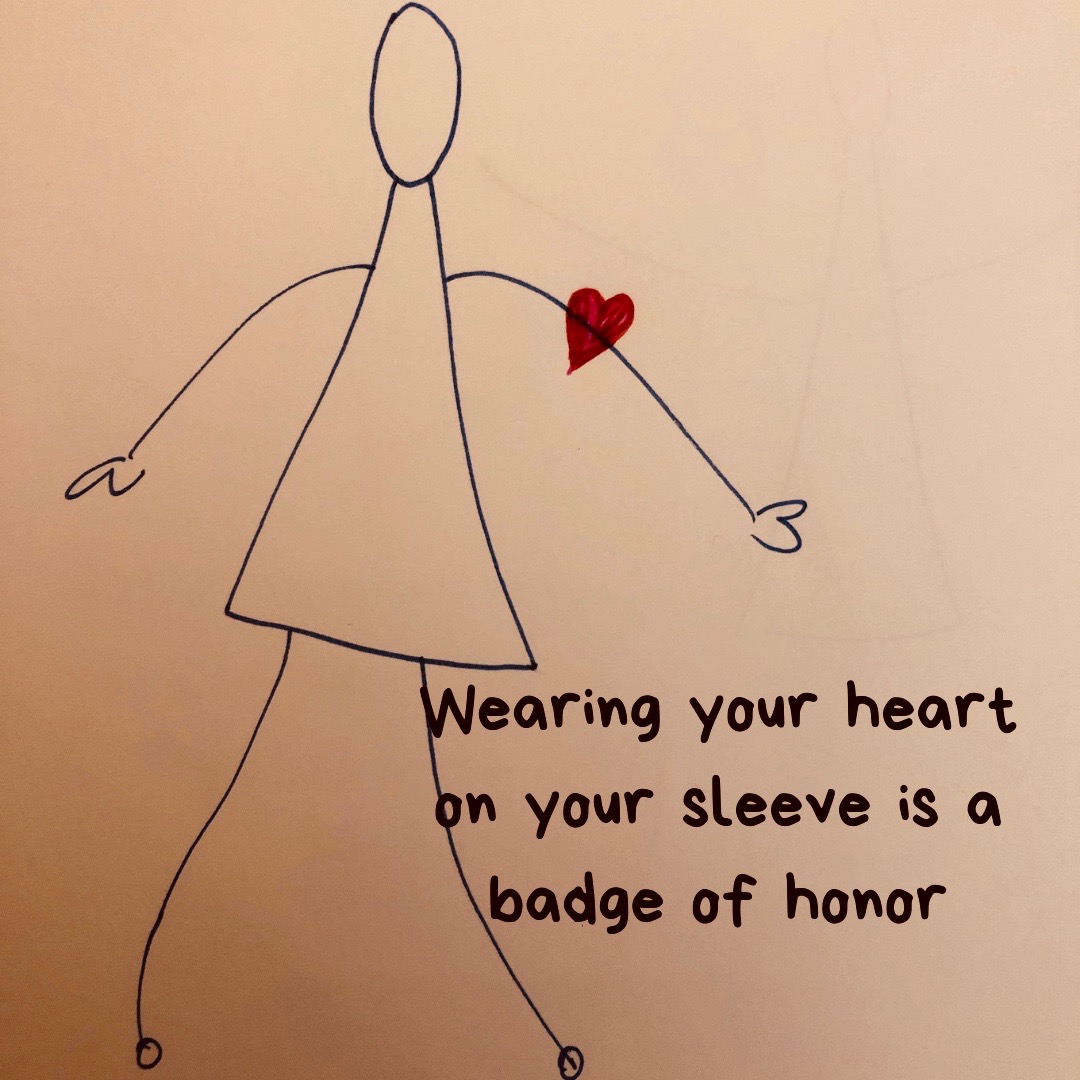
Over the years, I’ve heard people tell me that they’re “too emotional”. Usually, they say the word emotional as if it’s dirty, something to be avoided. Males especially, cringe at being labeled emotional or sensitive.
Why is being emotional synonymous with weakness?
Feeling deeply is a good thing. The problem is that it doesn’t always feel good. Sometimes, it’s excruciatingly uncomfortable. If experiencing emotions is painful, then how can someone who subjects himself/herself to this pain be weak?
I believe that feeling and expressing the emotions is incredibly brave. Brave and messy. (Brene Brown does an incredible job of unpacking emotional vulnerability and strength. She is a must read/watch.)
Why then, should you open yourself up to feel uncomfortable, anger, disgusted, hurt, sadness, disappointment, embarrassment, shame, etc…?
Because avoidance is a temporary solution. Feelings always come back. They settle inside of us and fester and create havoc. Have you seen Disney’s Inside Out? It’s a wonderful example for people ALL ages on how emotions – fear, anger, joy, disgust, and sadness – work in concert to affect us. Researchers have discovered that people who experience “emodiversity,” or a multitude of both positive and negative emotions, have better mental health.
Plus, pretending that our feelings don’t exist only reinforces that voice in our head that tells us feelings are bad. Research in neuroplasticity has shown us that our brains can grow and change and learn with practice, support, and proper brain fuel.
Imagine a field of grass with blades 4-5 inches high. As you walk across the grass, it flattens. The more you walk on those same blades of grass, the more it flattens and exposes the earth and a very well worn path. This is synonymous to what happens in the brain. If the path most travelled in the brain avoids discomfort at all costs, then we reduce our ability to face or tolerate future distress because continually avoiding feelings strengthens the neural pathways that tell us, “emotions are bad.”

AND Emotional avoidance is exhausting. Think about the amount of energy we spend avoiding. I like to compare avoiding emotions with sitting on a beach ball in the deep end of the pool. For me, trying to stay afloat while sitting on a beach ball in the pool is not an easy task. I wobble. I shake. I tip over. The ball shoots up from the water explosively. Can I do it? Yes, but not without a lot of force and constant expense of energy. Unprocessed or expressed emotions can actually become stuck in a person’s body affecting a their health and well-being. The mind body connection is no longer just theory; there is research to support the claim. Avoiding emotions can cause:
- Bodily stress
- High Blood Pressure
- Poor Memory
- Depression
- Anxiety
- Immune system loss
To quote from the movie Thanks For Sharing, “Feelings are like children, you don’t want them driving the car, but you don’t want to stuff them in the trunk either.” It’s time to explore, express, and examine our emotions.
